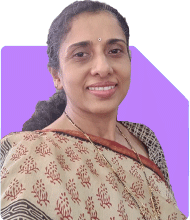Hi Sir, myself Pavani. My age is 34 years, I have a daughter who is 2 year old. My monthly salary is 50000. We don't have any property. I have 10 lac FD, I have insurance sum assured worth of 5 lac which will meture in 6 years . MF 1 lac, SSY account for my daughter have opened till now have 1 lac in that. Have opened Pradhan mantri pension scheme for my retirement planning. SIP 5k investing from past 10 months. I want to secure my and my daughter's future. Kindly suggest.
Ans: First, congratulations on your efforts to plan for your and your daughter's future! At 34, you have a steady monthly salary of Rs. 50,000 and a variety of existing investments. You have a 10 lakh FD, a 5 lakh insurance policy maturing in 6 years, 1 lakh in mutual funds, 1 lakh in a Sukanya Samriddhi Yojana (SSY) account for your daughter, and you're investing Rs. 5,000 per month in a SIP. Additionally, you’ve opened a Pradhan Mantri pension scheme for your retirement planning. Let’s build on this solid foundation to achieve your financial goals.
Setting Clear Financial Goals
Establishing clear financial goals is crucial. Your primary goals may include:
Securing your daughter’s education.
Building a substantial retirement corpus.
Ensuring adequate insurance coverage.
Creating an emergency fund.
By focusing on these goals, we can create a comprehensive investment strategy.
Creating a Diversified Investment Plan
Emergency Fund
An emergency fund is essential for financial security. It should cover 6-12 months of your monthly expenses. With a monthly expense of Rs. 50,000, aim for an emergency fund of Rs. 3-6 lakh. Your 10 lakh FD can act as your emergency fund, but consider moving a portion to a high-yield savings account for better accessibility.
Insurance Coverage
Ensure you have adequate insurance coverage for both life and health. A sum assured of 5 lakh is insufficient. Consider term insurance with a higher sum assured, covering at least 10-15 times your annual income. This will provide financial security to your daughter in case of any unforeseen event. Additionally, ensure you have comprehensive health insurance for yourself and your daughter.
Investment in Mutual Funds
Equity Mutual Funds
Investing in equity mutual funds can provide high returns over the long term. Allocate a portion of your monthly SIP towards diversified equity funds. These funds are managed by professionals and have the potential for significant growth. Given your current SIP of Rs. 5,000, consider increasing it as your salary grows.
Debt Mutual Funds
Debt mutual funds are less risky and provide steady returns. They invest in fixed-income securities like bonds and government securities. Allocate a part of your investment to debt funds for stability and moderate growth.
Systematic Investment Plan (SIP)
Your current SIP of Rs. 5,000 per month is a great start. SIPs help in averaging out the cost of investments and benefit from the power of compounding. Here’s a suggested allocation:
Equity Funds: Rs. 3,000 per month
Debt Funds: Rs. 2,000 per month
As your income increases, aim to gradually raise your SIP contributions.
Sukanya Samriddhi Yojana (SSY)
The SSY account for your daughter is an excellent initiative. It provides attractive interest rates and tax benefits. Continue contributing to this account regularly. Aim to maximize the annual contribution limit of Rs. 1.5 lakh to benefit from the compounded interest over the years.
Pradhan Mantri Pension Scheme
The Pradhan Mantri Pension Scheme is a good start for retirement planning. However, it’s essential to diversify your retirement investments. Alongside the pension scheme, invest in mutual funds and PPF (Public Provident Fund) for a balanced retirement portfolio.
Benefits of Professional Guidance
Certified Financial Planner (CFP)
A Certified Financial Planner can help you navigate your financial journey. They offer personalized advice, considering your financial goals and risk tolerance. A CFP can help you select the right mutual funds, insurance policies, and other investment options.
Personalized Advice
CFPs provide tailored financial advice. They consider factors like your income, expenses, goals, and risk appetite. This ensures your investments align with your financial objectives.
Avoiding Common Pitfalls
High-Risk Investments
Avoid high-risk investments like direct equities or speculative ventures. These can offer high returns but come with significant risks. Stick to diversified mutual funds for balanced growth.
Index Funds
Index funds simply mimic market indices. While they have lower management fees, actively managed funds can provide higher returns. Professional fund managers can make strategic decisions to outperform the market.
Direct Mutual Funds
Direct mutual funds may seem attractive due to lower costs. However, investing through a CFP ensures professional guidance. This maximizes your returns and aligns your investments with your financial goals.
Long-Term Financial Planning
Projecting Future Needs
Estimate your future financial needs, including your daughter's education and your retirement expenses. Consider factors like inflation and lifestyle changes. This helps in setting clear targets for your savings and investments.
Regular Reviews
Regularly review your investment portfolio to ensure it stays on track. Market conditions change, and so should your investment strategy. Consult your CFP to make necessary adjustments based on performance and goals.
Reinvesting Matured Funds
When your insurance policy matures in 6 years, reinvest the Rs. 5 lakh in mutual funds. This will significantly boost your investment corpus. Choose a mix of equity, debt, and hybrid funds to balance risk and returns.
Benefits of Mutual Funds
Professional Management
Mutual funds are managed by professional fund managers. They have the expertise to select the best stocks and bonds, ensuring optimal returns. This professional management is crucial for maximizing your investments.
Diversification
Mutual funds offer diversification, spreading your investment across various assets. This reduces risk and ensures stability. A diversified portfolio is key to balanced growth and risk management.
Compounding Returns
Investing in mutual funds through SIPs leverages the power of compounding. The returns earned are reinvested, generating further returns. This significantly boosts your investment growth over time.
Financial Discipline
Budgeting
Create a monthly budget to track your income and expenses. This helps in identifying areas where you can cut costs and allocate more towards investments. Financial discipline is key to achieving your goals.
Avoiding Unnecessary Expenses
Limit unnecessary expenses and focus on essential spending. This ensures more funds are available for investments, accelerating your wealth creation and securing your and your daughter's future.
Emergency Fund
Maintain an emergency fund to cover unforeseen expenses. This prevents you from dipping into your investments. An emergency fund ensures financial stability and peace of mind.
Staying Informed
Regular Updates
Stay informed about your investments by regularly checking their performance. Use financial news, market analysis, and updates from your CFP to make informed decisions. Knowledge is power in managing your investments.
Continuous Learning
Educate yourself about different investment options and market trends. Continuous learning helps in making better investment choices and understanding the financial landscape.
Feedback from CFP
Regularly seek feedback from your CFP regarding your investment strategy. They can provide valuable insights and recommendations based on market conditions and your financial goals.
Final Insights
Securing your and your daughter's future is achievable with disciplined investing and financial planning. By diversifying your investments, leveraging SIPs, and seeking professional guidance, you can effectively grow your wealth and achieve your goals. Stay informed, maintain financial discipline, and regularly review your portfolio to ensure it aligns with your objectives. Investing in a mix of equity, debt, and hybrid mutual funds will provide a balanced approach, ensuring both growth and stability.
Best Regards,
K. Ramalingam, MBA, CFP
Chief Financial Planner,
www.holisticinvestment.in



























